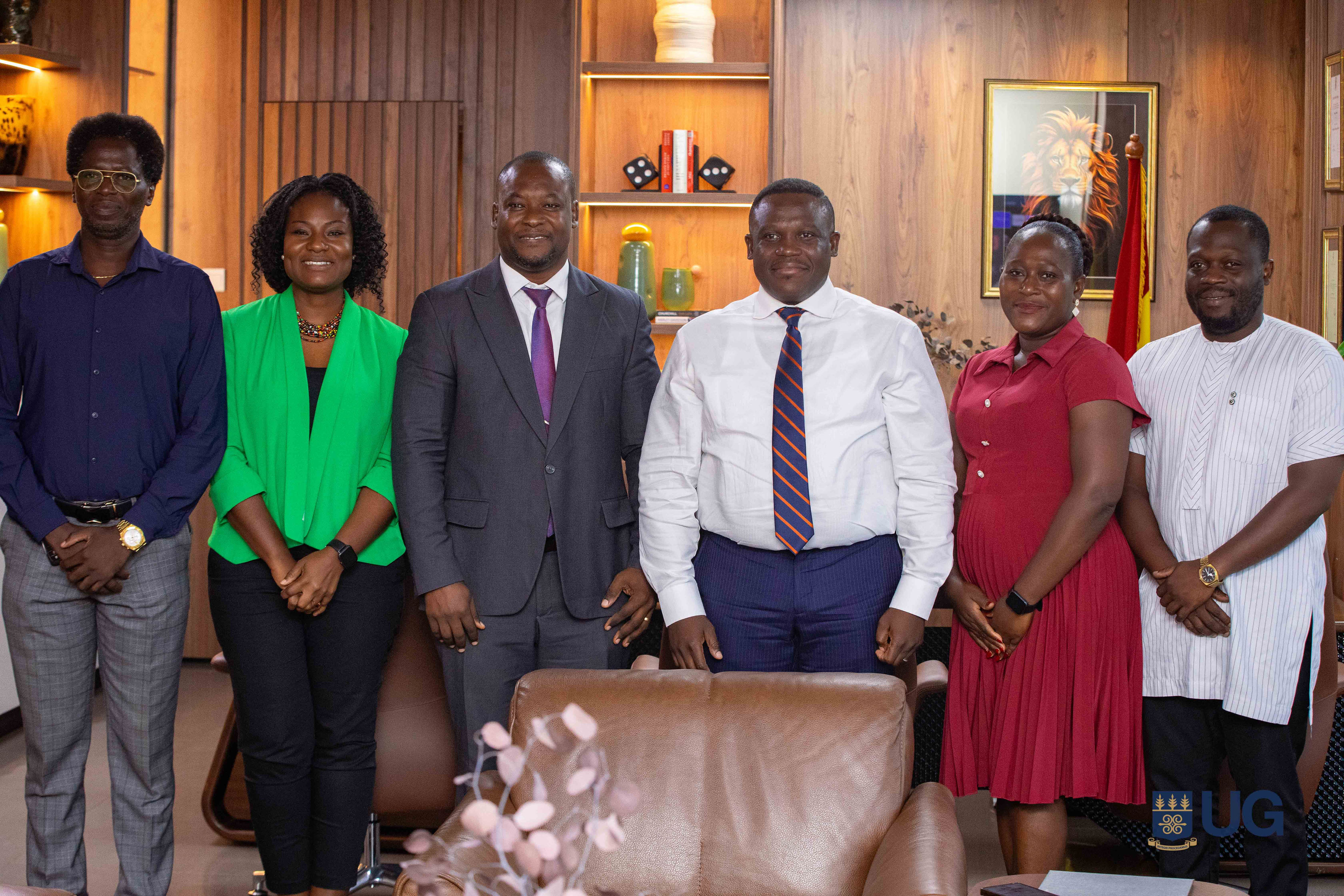Strengthening Ghana’s Innovation Ecosystem: UG’s Research and Innovation Directorate Engages Communications Ministry on Digital Skills and Collaboration

New and emerging digital skills initiatives in Ghana, including innovation-driven programmes such as coding and artificial intelligence (AI), require strong multi-stakeholder collaboration between government, academia and industry. In line with this, the University of Ghana’s Research and Innovation Directorate (RID) is taking strategic steps to deepen partnerships that will strengthen the country’s innovation ecosystem.
As part of this effort, the Director of the Research and Innovation Directorate, Prof. David Dodoo-Arhin, led a team from the Directorate to engage the Minister of Communications, Digital Technology and Innovations, Hon. Samuel Nartey George, at his office. The meeting provided an opportunity for both sides to explore avenues for collaboration, particularly in advancing digital literacy, innovation and research-based solutions to national development challenges.
In his remarks, Prof. Dodoo-Arhin explained that the Directorate serves as the research and innovation arm of the University, supporting the development and translation of research into solutions for industry, government and society. He detailed the readiness of the University to contribute to national innovation policies, especially in light of the Ministry’s digital skills programmes.
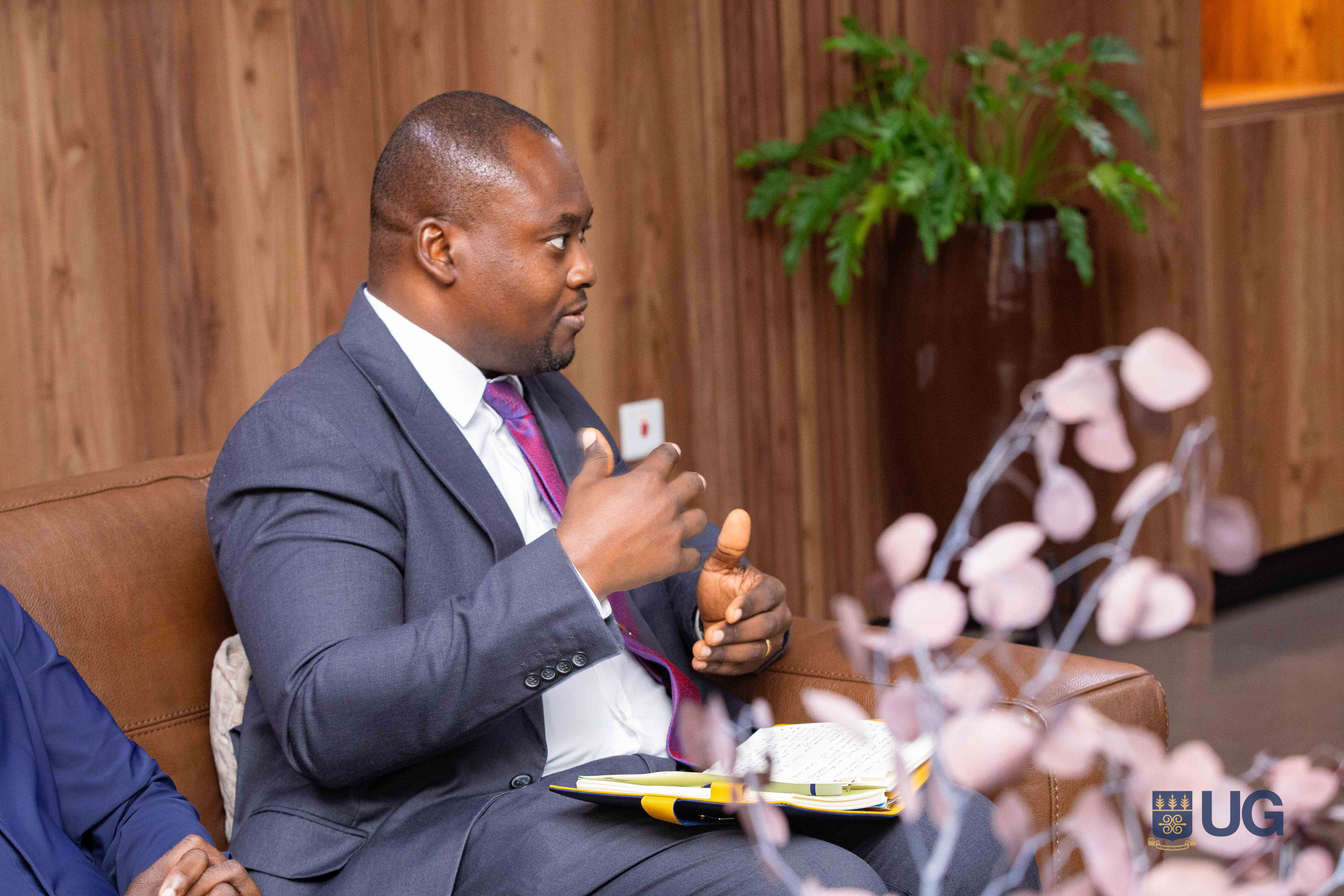
“We recognise the important role academia must play in ensuring that the government's digital and innovation agenda is driven by solid research and practical expertise,” Prof. Dodoo-Arhin stated. He highlighted the University’s ongoing efforts to nurture innovation, including hackathons designed to sharpen the skills of young innovators and provide real-world problem-solving experiences.
Prof. Dodoo-Arhin also reaffirmed the University’s commitment to supporting the government’s flagship ‘One Million Coders’ initiative, noting that UG has both the space and faculty expertise to facilitate training, curriculum development and certification for professionals who will undergo the coding programme. He further indicated the University's keen interest in the emerging Startup and Innovation Bill, especially its provisions for innovation hubs and business incubation, which align with the University’s own innovation strategy.
On his part, Hon. Samuel Nartey George, welcomed the partnership and underscored the Ministry's commitment to collaborating with academic institutions. He was of the view that successful policy implementation, particularly in the tech and innovation sectors, must be rooted in academic research and insights.
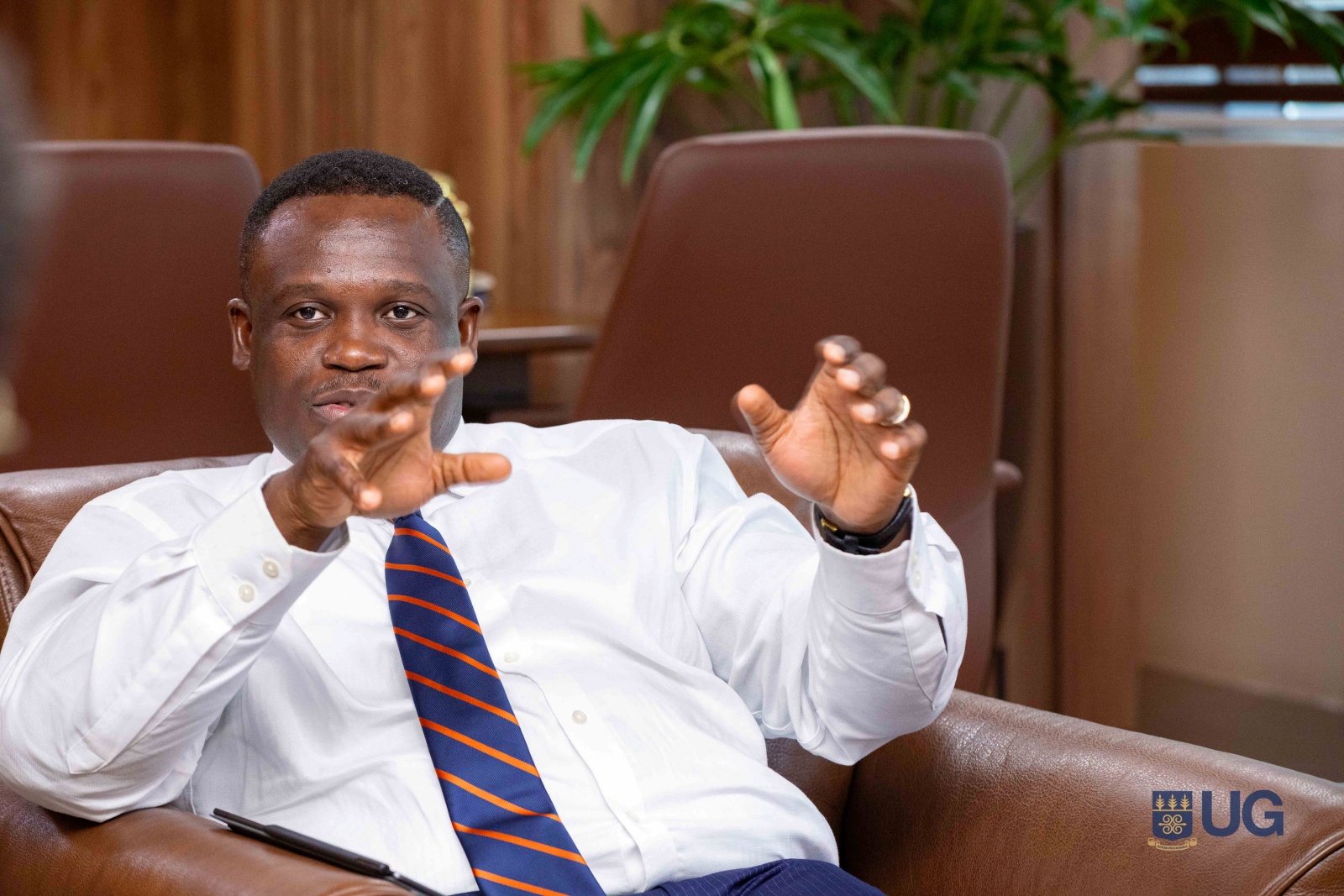
The Minister revealed that the Ministry has committed resources through its goods and services budget to ensure the completion of the Digital Youth Village within three months, paving the way for its operationalisation in collaboration with the University of Ghana. The facility, he explained, will serve as a national hub for digital skills training, using UG faculty and experts to deliver world-class instruction.
Hon. Nartey George, also discussed plans to establish similar centres across the country, forming a networked innovation ecosystem that will drive entrepreneurship and technology adoption nationwide. He highlighted the importance of the ‘One Million Coders’ programme in reskilling Ghana’s workforce and announced the expansion of the initiative, with continued engagement of public universities across the country to help shape its design and delivery.
Further discussions explored the integration of artificial intelligence, particularly in sectors such as agriculture, health and education and how academia can provide thought leadership and research-driven solutions in these areas.
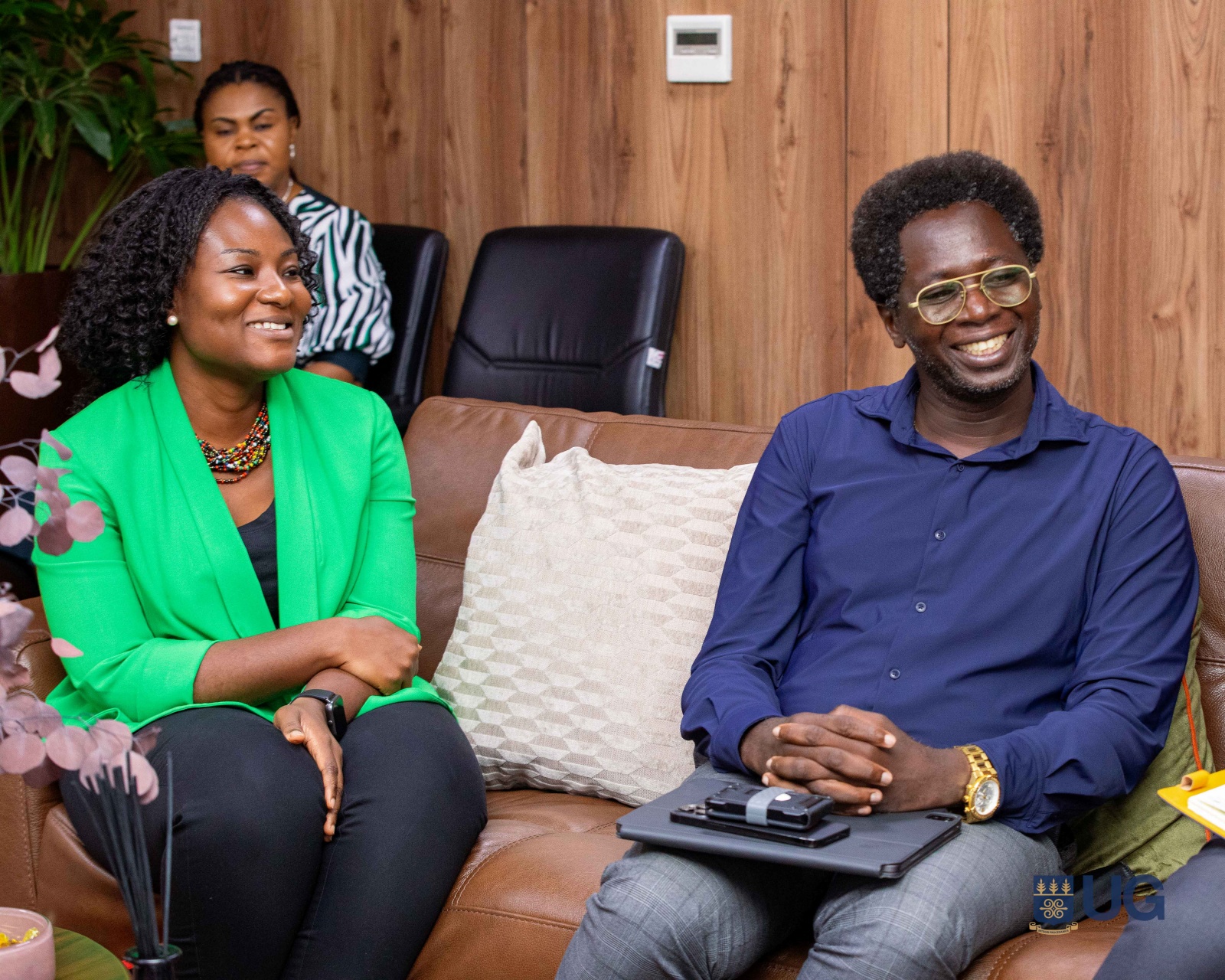
The Minister also revealed plans for the formation of a national steering committee to evaluate existing training programmes in technological innovation. The committee, according to him, will work towards the development of a unified national curriculum, subject to the approval of the Ghana Tertiary Education Commission (GTEC), to ensure coherence and quality across all digital training initiatives.
Additionally, the visiting team extended an invitation to the Minister to attend an upcoming Hackathon focused on AI designs for Persons with Disabilities, to be hosted by the Department of Computer Science in May. The Minister was also invited to the 19th International Conference on Advanced Materials (ICAM), which the University is co-hosting later in the year in collaboration with the International Union of Materials Research Societies (IUMRS) and the African Materials Research Society (AMRS).
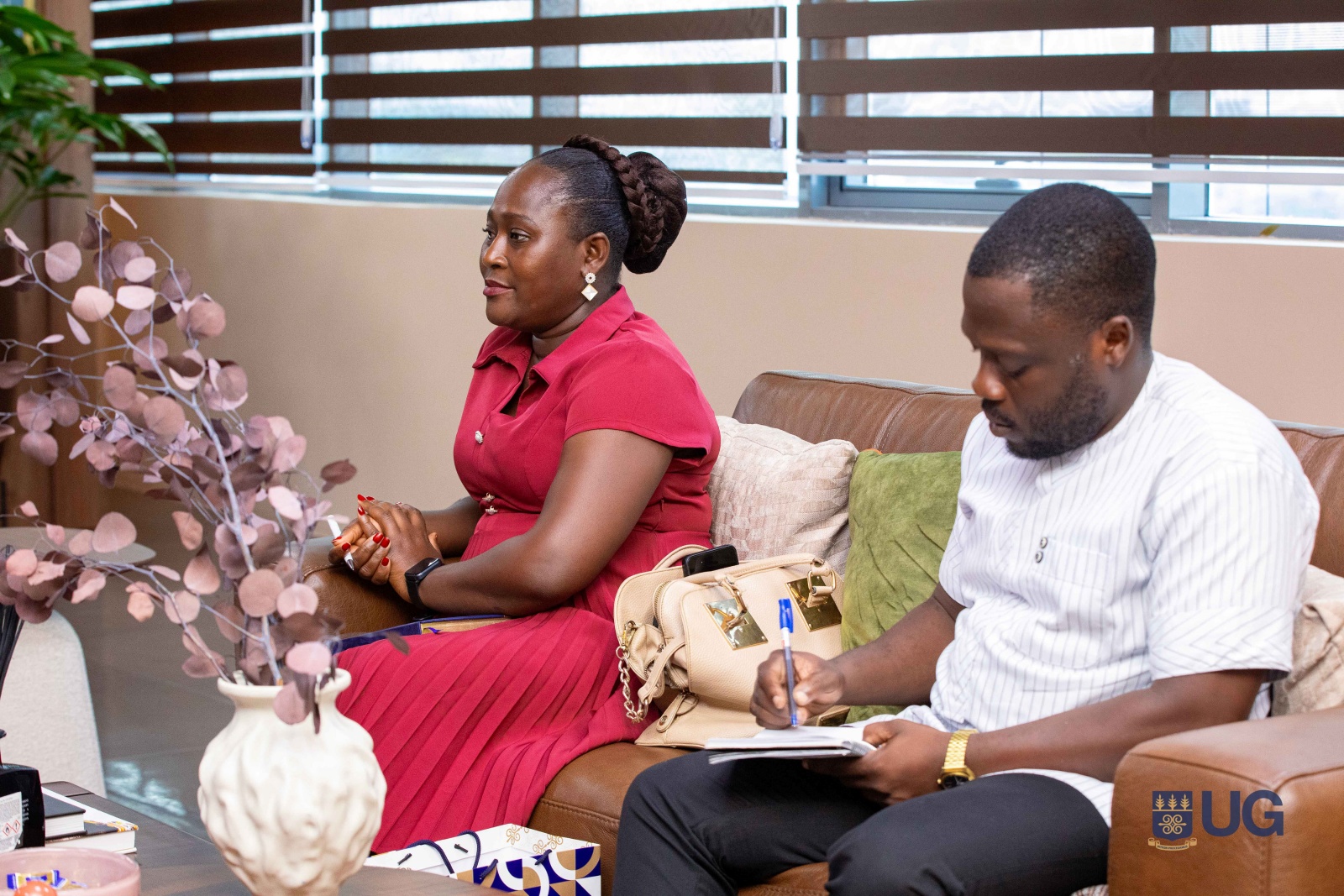
The meeting concluded with both sides affirming the importance of continued dialogue and collaboration in shaping Ghana’s innovation landscape. The Minister extended an open invitation to academia to engage with the Ministry in refining policy frameworks, identifying best practices and expanding the impact of digital transformation initiatives.
The UG delegation included Prof. Isaac Wiafe from the Department of Computer Science; Ms. Mammie N. Hutchful Nortey, Senior Research Development Officer; Mr. Leslie C. Kumahlor, Research Development Officer and Mrs. Irene Y. Ashiley, Assistant Registrar at the Research and Innovation Directorate.
